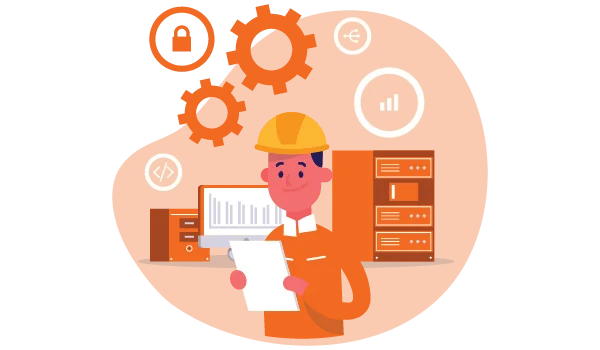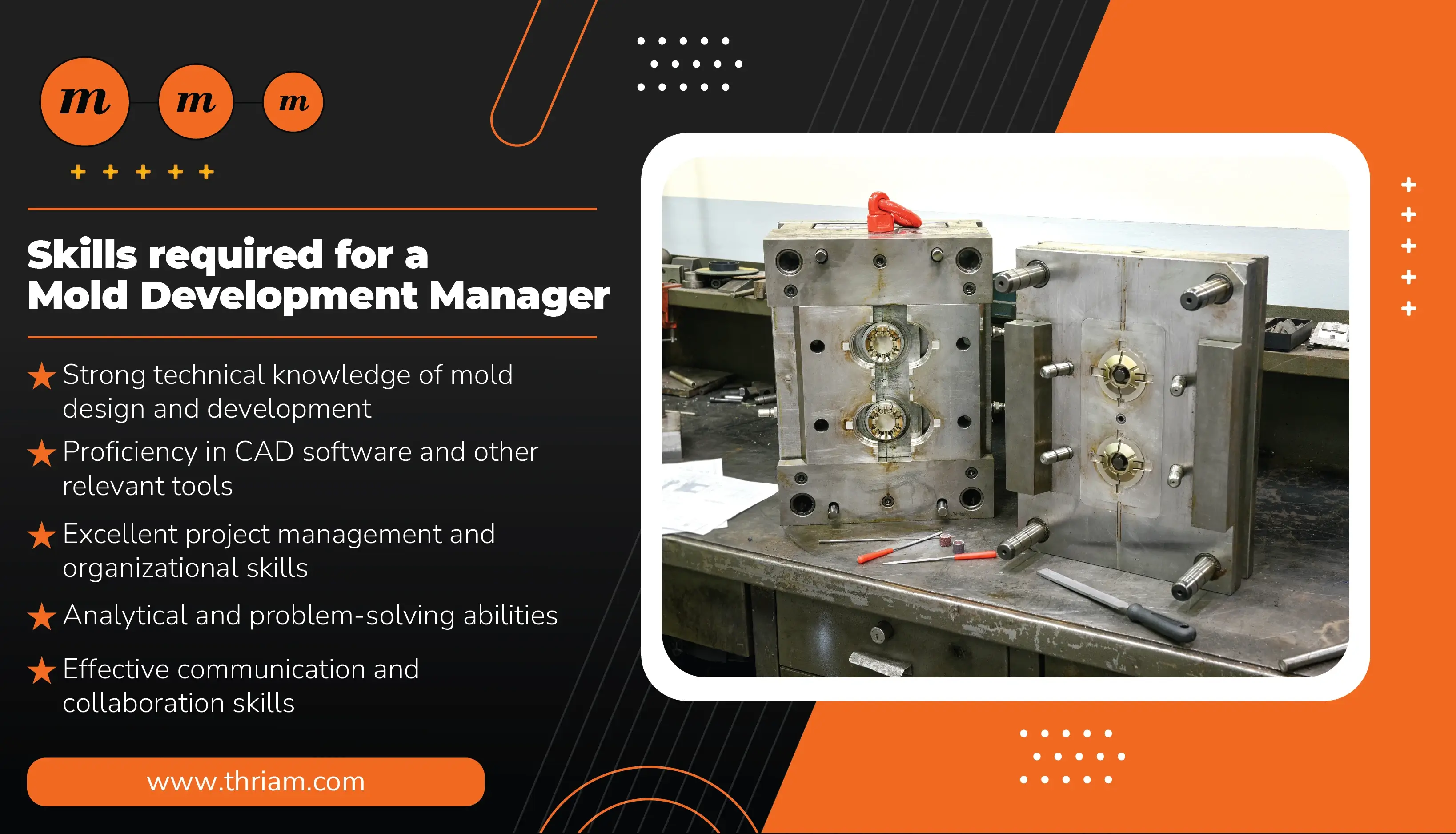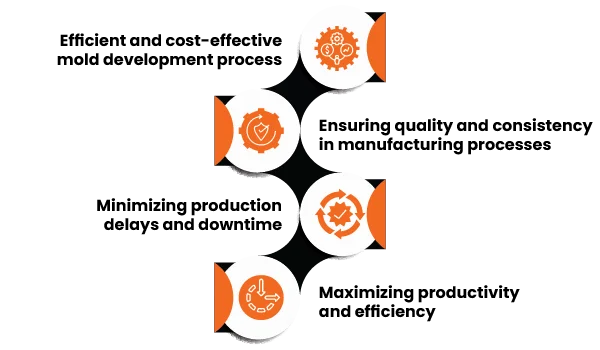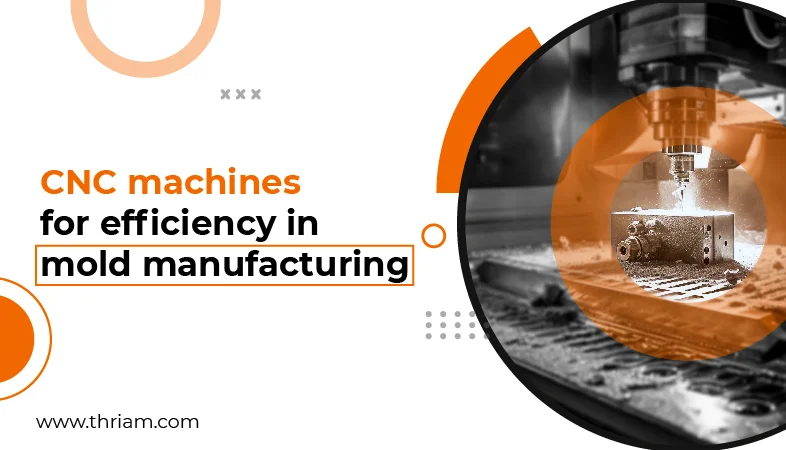Unveiling the Key Responsibilities and Essential Skills of a Mold Development Manager

Mold development is of paramount importance in the manufacturing industry as it directly impacts the quality, efficiency, and cost-effectiveness of production processes. Molds are instrumental in shaping raw materials into finished products, ensuring consistency and precision in manufacturing. A well-designed and properly developed mold facilitates smooth operations, minimizing defects, and maximizing productivity. It enables manufacturers to meet customer demands effectively and efficiently. Additionally, mold development plays a crucial role in reducing overall production costs by optimizing material usage, reducing waste, and streamlining manufacturing processes. Ultimately, mold development is essential for ensuring the success and competitiveness of manufacturing businesses in today's global market.
A mold development manager is a professional responsible for overseeing the design, development, and implementation of molds in the manufacturing industry. They work closely with cross-functional teams to ensure that molds are created to meet the specific requirements and quality standards of the production process. Mold development managers play a crucial role in managing project timelines and budgets, testing and validating molds for quality assurance, and troubleshooting any technical issues that may arise during the mold development process. Their expertise and knowledge in mold design and development contribute to the efficient and cost-effective manufacturing of products.
In this blog post, we will explore the responsibilities and skills required for a mold development manager.
Responsibilities of a Mold Development Manager

-
Overseeing the design and development of molds: The mold development manager is responsible for working closely with the engineering team to create molds that meet the specific requirements of the manufacturing process. They must ensure that the molds are designed to produce high-quality products efficiently.
-
Collaborating with the engineering team: Effective collaboration with the engineering team is essential to ensure that the molds are designed and developed according to the needs and specifications of the manufacturing process. The mold development manager acts as a liaison between the engineering team and other stakeholders, ensuring clear communication and coordination.
-
Managing project timelines and budgets: Mold development projects often have strict timelines and budgetary constraints. The mold development manager must effectively manage these constraints, ensuring projects are completed on time and within the allocated budget. They play a vital role in planning, scheduling, and monitoring project progress.
-
Testing and validating molds for quality assurance: Before molds are put into production, they need to be thoroughly tested and validated to ensure they meet quality standards. The mold development manager is responsible for implementing quality assurance processes, conducting tests, and addressing any issues or discrepancies identified during testing.
-
Troubleshooting and resolving technical issues: Inevitably, challenges and technical issues may arise during the mold development process. The mold development manager must have strong problem-solving skills and the ability to quickly identify and resolve any technical issues that may hinder the production process.
Skills required for a Mold Development Manager

Strong technical knowledge of mold design and development:
A mold development manager must possess a deep understanding of mold design principles, materials, and manufacturing processes. They should stay up-to-date with the latest advancements and trends in mold design and technology.
Proficiency in CAD software and other relevant tools:
Computer-aided design (CAD) software is an essential tool in mold development. A mold development manager should have expertise in utilizing CAD software and other relevant tools to create and modify designs, perform simulations, and optimize mold performance.
Excellent project management and organizational skills:
Managing mold development projects requires effective project management and organizational skills. The mold development manager should be able to plan and coordinate multiple projects simultaneously, ensuring they are executed efficiently.
Analytical and problem-solving abilities:
Mold development managers need to analyze complex technical problems and develop effective solutions. They should possess strong analytical and problem-solving abilities to tackle challenges that may arise during the mold development process.
Effective communication and collaboration skills:
Collaboration is essential in mold development, as the mold development manager interacts with engineers, designers, and other stakeholders. Strong communication and collaboration skills are necessary to facilitate effective teamwork and ensure everyone is aligned with the project goals.
Importance of a Mold Development Manager in the manufacturing industry
A mold development manager plays a critical role in the manufacturing industry for the following reasons:

Efficient and cost-effective mold development process:
By overseeing the mold development process, mold development managers ensure that molds are designed and developed efficiently, minimizing costs and reducing production time.
Ensuring quality and consistency in manufacturing processes:
Molds are crucial in maintaining product quality and consistency in the manufacturing process. Mold development managers ensure that molds meet the required specifications and quality standards, resulting in high-quality products.
Minimizing production delays and downtime:
Effective mold development management helps reduce production delays and downtime. By efficiently managing the mold development process, mold development managers ensure that molds are ready when needed, avoiding costly production delays.
Maximizing productivity and efficiency:
Well-designed molds lead to increased productivity and efficiency in the manufacturing process. Mold development managers work towards optimizing mold performance, enabling the production of higher volumes of products in a shorter amount of time.
Conclusion
The role of a mold development manager is crucial in ensuring the successful design, development, and implementation of molds in the manufacturing industry. The responsibilities of these managers require a combination of technical knowledge, project management skills, problem-solving abilities, and effective communication. By effectively managing mold development projects and optimizing mold performance, mold development managers contribute to the overall success of manufacturing processes.



